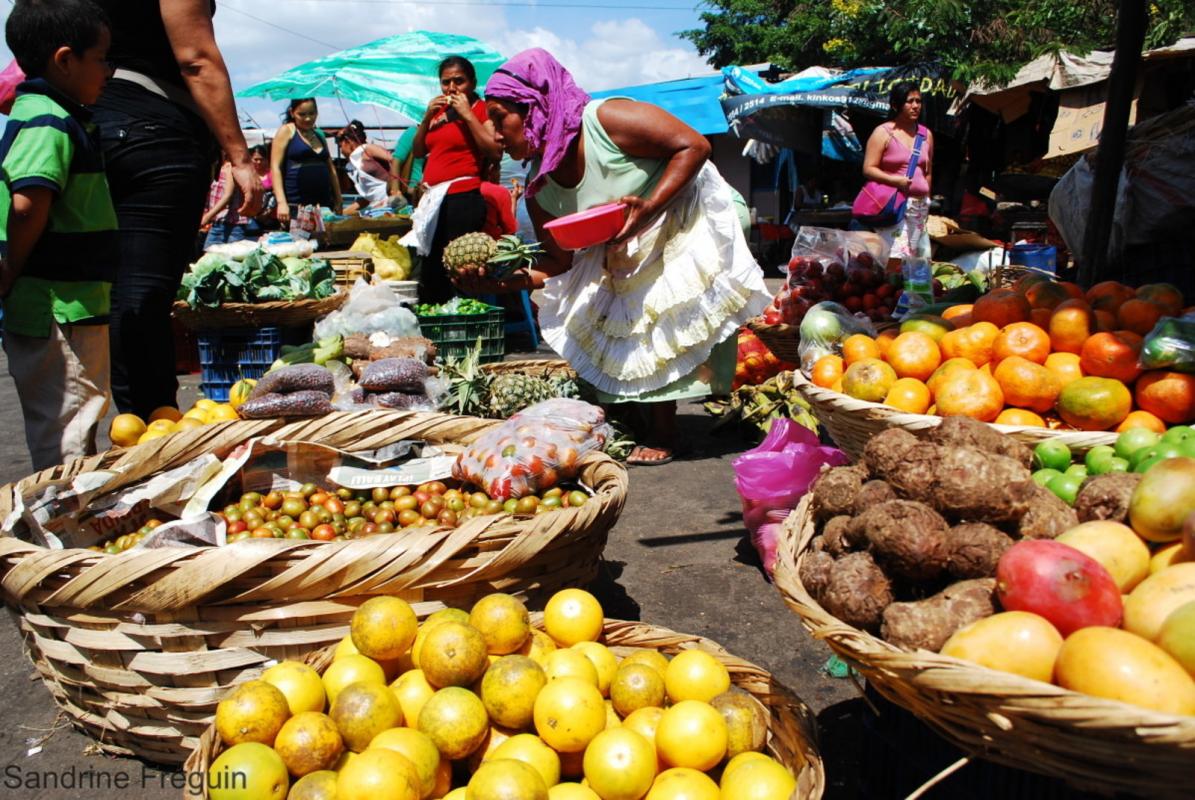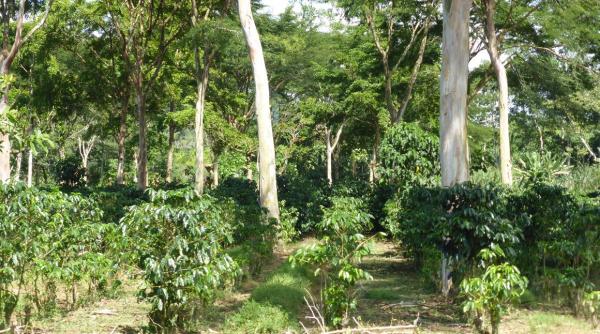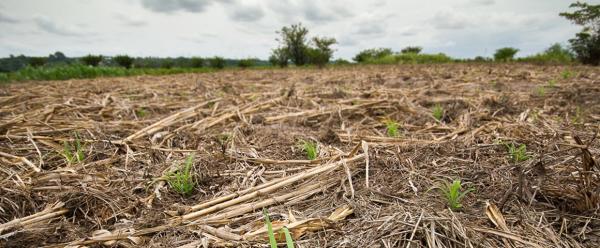Call to action 16 April 2025
- Home
- Press area
- Press releases
- pandemic coronavirus threat agriculture food
Covid-19 | A crisis highlighting the need to transform food systems

The Covid-19 pandemic is threatening food systems that have already been on a knife edge for several decades, according to IPES Food © S. Fréguin, CIRAD
"Our food systems having been sitting on a knife-edge for decades" , the International Panel of Experts on Sustainable Food Systems (IPES-Food) warns. According to the expert panel, the current pandemic highlights the weak spots and inequalities of a system that is running out of steam.
"The pandemic originated in an over-exploitation of nature that has fostered the destruction of habitats and virus emergence and spread", Nicolas Bricas, a CIRAD researcher who is on the panel, stresses. "It is threatening hundreds of millions of vulnerable people working in agriculture and food processing and trade, who have themselves been over-exploited for years to maintain competitiveness and cheap food", he adds. "The pandemic is mostly killing obese people, who are already the victims of a market flooded with foods containing excessive amounts of sugar, fat and salt. It is disrupting a system that operates on a just-in-time basis, which is likely to seize up and trigger shortages."
IPES-Food's four recommendations
IPES-Food has made four recommendations in response to the crisis, aimed at ensuring a transition towards more resilient, sustainable food systems:
1. Taking immediate action to protect the most vulnerable
Some 820 million people were already undernourished before the pandemic**, with 2 billion affected by food insecurity. The aim is therefore to prevent the risks of famine, and of several million people falling below the poverty line as economic activities slow down or come to a halt. IPES-Food recalls the measures recommended by the UN and FAO, such as "providing cash transfers or individual debt relief to the most vulnerable families" . The panel also stresses the importance of food banks and community meal providers.
2. Building resilient agroecological food systems
"A paradigm shift from industrial agriculture to diversified agroecological systems is more urgent than ever", the experts say. Agroecology reconciles economic, environmental and social factors and is founded on a territory-based approach. The results achieved by agroecological systems are acknowledged by FAO, IPCC, IPBES and the World Bank. "Agroecology builds resilience by combining different plants and animals, and uses natural synergies - not synthetic chemicals - to regenerate soils, fertilize crops, and fight pests" , IPES-Food says. This type of system enables crops and livestock to resist climate change and diseases better, while ensuring satisfactory yields.
3. Rebalancing economic power for the public good: a new pact between state and society
"Major governance gaps have emerged, first and foremost in regard to insufficient investment in public health, but also in food security", the experts point out. They call for multi-level governance, including civil society players. Moreover, they are against short- and medium-term interests, calling for long-term, "systemic thinking that would allow us to weather new crises when they arise" .
4. Reforming international food systems governance
Lastly, IPES-Food calls for better global debate of these issues, notably through a UN body: the Committee on World Food Security (CFS). According to the panel, the CFS is "a unique forum providing a coordinated global response to food system issues, debating with governments and holding them to account" . It adds, "The crisis also provides the perfect opportunity to rethink the 2021 Food Systems Summit and refocus it on resilience and agroecology, building on democratic debate at the CFS".
IPES-Food hopes that these recommendations will ensure a profound transformation of our current food systems.
Read the full IPES-Food press release
* FAO / IFAD / WFP / World Bank joint statement on COVID-19 impacts on food security and nutrition
About IPES-Food
IPES-Food is a panel of 27 experts in various fields: agronomists, environmental scientists, nutritionists, sociologists, political scientists, development economists and practitioners from civil society and social movements. IPES-Food is chaired jointly by Olivier De Schutter, former UN Special Rapporteur on the right to food and recently appointed UN Special Rapporteur on extreme poverty and human rights, and Olivia Yambi, senior consultant on nutrition and sustainable development and former UNICEF Country Representative in Kenya.
About CIRAD
CIRAD is the French agricultural research and international cooperation organization working for the sustainable development of tropical and Mediterranean regions. Along with its partners, it is convinced that agriculture has a central role in the major transitions required to guarantee a sustainable future for every country in the global South. Generating and sharing new knowledge, contributing to innovation processes and building the capacity and skills of stakeholders in those countries to support their sustainable development are the drivers of its operations. In particular, its activities centre on issues such as biodiversity, the agroecological transition, climate change, health (of plants, animals and ecosystems), the development of rural territories, and food systems. CIRAD works in some fifty countries on every continent, thanks to the expertise of its 1650 staff members, including 800 researchers, backed by a global network of partners.
.



























